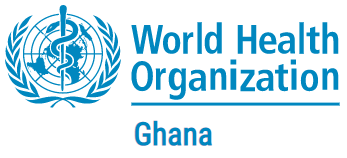The death of his mother six years ago was a rude awakening for Saviour Yevutsey. “What started as a simple cough led to a diagnosis of pneumonia,” he recalls. “After several medicines were administered without any improvement, my mother was referred to another district hospital and later to the teaching hospital for further treatment.”
Yevutsey spent a fortune on medicines that did not deliver the needed relief to his mother and she died, a memory that still brings him pain.
He discovered that his mother had experienced antimicrobial resistance, which happens when germs like bacteria and viruses develop the ability to beat the drugs designed to kill them. This makes infections harder to treat and can lead to severe illness and even death. This was Yevutsey’s first personal experience with a drug-resistant germ, even though in his profession as a senior health official in Ghana’s Ministry of Health he had been for years fighting antimicrobial resistance.
In Ghana, the prevalence of resistance to common and affordable antibiotics is above 70%, according to a 2011 study by Mercy Newman and others. Despite the high prevalence, awareness of antimicrobial resistance among people is still very low. Several studies have shown evidence of antimicrobial resistance with some germs that lead to common conditions such as throat infections and intestinal tract infections showing multi-drug resistance to standard antibiotics, some as high as 78%.
“We continue to see alarming trends of antimicrobial resistance in Ghana,” says Dr Joycelyn Azeez, Chief Professional Officer: Pharmacy, at Ghana’s Ministry of Health. “We are therefore exploring innovative strategies with development partners from the health, animal and environmental sectors to address this challenge.”
The government, with support from World Health Organization (WHO) and other partners, is stepping up efforts to fight antimicrobial resistance. WHO, in collaboration with the Food and Agricultural Organization (FAO), supported the development of a five-year Policy on Antimicrobial Use and Resistance and a costed Ghana National Action Plan on Antimicrobial Resistance, which provide a roadmap for antimicrobial resistance initiatives in the country.
Furthermore, WHO supported the establishment of an antimicrobial resistance secretariat and built the capacity of its members to lead and implement the multisectoral national action plan.
In collaboration with the Special Programme for Research and Training in Tropical Diseases, WHO trained frontline workers from all three sectors on how to use routine antimicrobial resistance data for research purposes. As a result, 19 articles have been published between 2021 and 2023 in peer reviewed journals, providing evidence for local decision making and guiding the development of the second national action plan in 2024.
WHO, along with FAO, World Organization for Animal Health, and Ghana Environmental Protection Agency, under the auspices of the Antimicrobial Resistance Multi-Partner Trust Fund, has assessed the capacity of 20 human health laboratories in 11 regions in Ghana to determine their ability to identify pathogens that can cause infections and test to see what kind of antimicrobial will best treat them (called a culture and sensitivity test). As a result of the assessment, partners have been able to provide a baseline assessment to compare to future ones. The partners have also helped to classify antibiotics in Ghana’s standard treatment guidelines following the WHO’s Access, Watch and Reserve categories to help guide the appropriate use of antibiotics. This classification is a tool for antibiotic stewardship at local, national and global levels with the aim of reducing antimicrobial resistance. In addition, 15 private health facilities were trained to practice better infection prevention at their facilities.
“A lot more work is being done to strengthen Ghana’s systems and policies to fight antimicrobial resistance to preserve the efficacy of these essential medicines,” says Dr George Hedidor, technical officer on antimicrobial resistance and the Structured Operational Research Initiative at WHO Ghana.
Working together, partners have also conducted a survey of resistant germs in waste from selected pharmaceutical companies and abattoirs and developed biosecurity standards (which help prevent the spread of germs to humans, animals, plants and the environment) in the pork, fish and poultry farming industry. A mobile app has also been developed for use by fish farmers who are now able to document and transmit data on the use of antimicrobials on their farms.
These activities have been conducted using the One Health approach, which brings together partners to ensure the best health outcomes for people, animals and ecosystems in a sustainable and balanced way. The approach recognizes that the health of humans, domestic and wild animals, plants, and the wider environment are closely linked and interdependent.
“We must together prioritize the effective practice of infection prevention, biosecurity on our farms and environmental cleanliness; enforce regulations on medicines, strengthen laboratory capacity for surveillance and preserve the supply chain integrity as part of efforts to effectively tackle the growing threat of antimicrobial resistance,” says Dr Francis Kasolo, WHO Representative in Ghana.
Distributed by APO Group on behalf of World Health Organization (WHO), Ghana.
